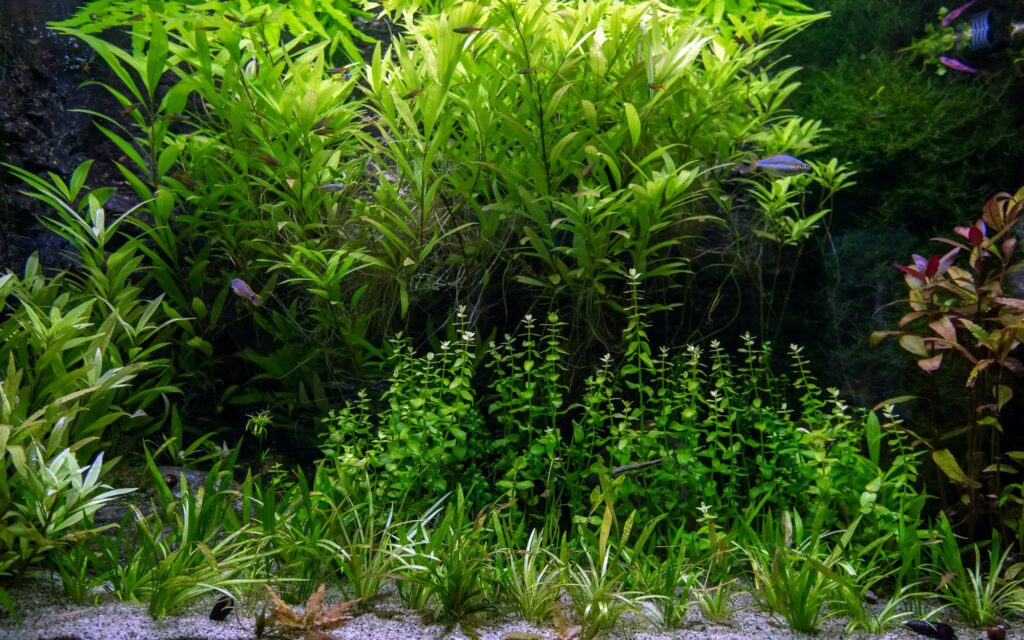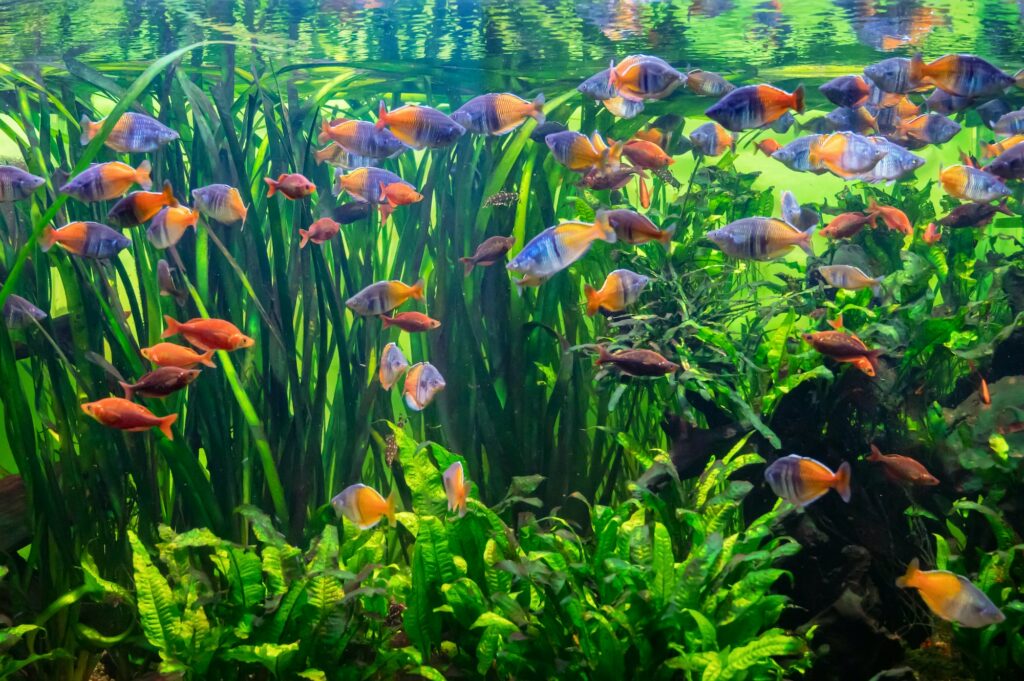Plants are a great addition to any fish tank. In order to get the most out of your aquarium plants, it is important to learn about the plants that are best suited for your tank. Kick back and relax as we tell you all you need to know about selecting plants for your fish friends.
How To Select The Right Aquarium Plants For Your Fish Tank
By taking these factors into consideration, you will be able to choose the best aquarium plants that are best suited to the specific conditions of your tank and its inhabitants.
Lighting
All plants, whether they are above ground or underwater, need light to photosynthesise and grow. Not all plants require the same amount and intensity of light, though. Some plants require high levels of light, while others can thrive in low levels of light.
It is, therefore, important to choose plants that match the lighting conditions in your tank.
Water Parameters
Different plants have different preferences for water parameters like pH, temperature, and hardness.
Some plants prefer a neutral pH of around 7, while others prefer a slightly acidic or basic pH.
It is, therefore, important to match the plants to the water parameters of your tank in order to ensure that the plants will thrive.
Fish Behavior
Some fish are known for eating aquarium plants.
If you are getting plants solely for aesthetic purposes and not to provide your fish with sustenance, it is important to choose plants that are less likely to be destroyed by your fish.
Maintenance
Some aquarium plants are more demanding in terms of maintenance than others.
For example, some plants might require pruning in order to maintain their shape, while other plants are more low maintenance.
Plants should be chosen depending on your degree of skill and the amount of time you are ready to dedicate to plant maintenance.
Aesthetics
One of the factors influencing choosing an aquatic plant is the aesthetics of the plant and the aesthetics of your tank.
Some plants are better suited to certain aesthetics than others and, as such, should be chosen accordingly.
It is important to research each plant before you buy it to ensure it will be a good fit for your tank.

The 5 Best Aquarium Plants For Beginners
Here are five of the best aquarium plants for beginners. All of them are low maintenance and quite easy to take care of;
Java Fern
The Java Fern is a slow-growing, hardy plant that is quite easy to take care of. It is a plant that can handle a wide range of water conditions and is, therefore, suitable for most tanks. Maintaining the plant is easy as it does not require any special lighting or fertilisers.
Anubias
Anubias is another hardy plant that is easy to take care of. It can thrive in low light and does not require any special fertilisers or substrate. It can be attached to driftwood or rocks for a natural look.
Marimo Moss Ball
Marimo Moss Balls are a popular choice for aquariums, even though they aren’t technically plants. They are extremely low-maintenance and easy to care for as they do not require any special lighting or fertilisers.
Hornwort
The Hornwort plant is fast-growing and is often used as a background plant in aquariums. It is suitable for most aquariums as it can handle a wide range of water conditions. It is another extremely low-maintenance plant as it doesn’t require any special lighting or fertilisers.
Sword Plant
Sword plants are often used to add height to an aquarium. They are moderately easy to care for because although they do not require any special lighting or fertilisers, they do need a good substrate to grow in.
We are confident that with these starter plants, you will be well on your way to being an expert in aquarium plant care.

How To Properly Care For And Maintain Healthy Aquarium Plants
The specifics of how to properly care for your aquarium will depend on the specific plants that you have in your aquarium, but here are a few general tips that you can keep in mind.
- An important aspect of plant care is pest control.
Algae and snails are the most frequent pests that aquarium plants confront, so keep an eye out for any symptoms of infestation. If you see any bugs, you may destroy them with a safe and efficient pest control solution.
- All plants need nutrients to grow, and as such, it is important to provide them with the fertilisers that they need. A liquid or substrate fertiliser will work perfectly fine. To avoid over-fertilizing your tank, make sure to follow the guidelines on the fertiliser label.
While it is easy to just hop into any plant store and buy the most beautiful plants for your fish tank, it is important to carry out research and learn about the important steps to follow before making your pick.
FAQs
How often should I change the water in an aquarium with live plants?
As with all living things, living in stagnant water is not healthy and could lead to many aquarium plants becoming sick or dying. This is why it is crucial that you change the water in an aquarium often.
How often you should change your water depends on several factors, such as the size of the tank, the type of fish and the number of plants you are using.
By understanding these variables, you can create a maintenance schedule that will keep your aquarium healthy.
What are the benefits of having live plants in an aquarium?
Having live plants in your aquarium gives you access to two broad benefits; functional and aesthetic benefits.
Functionally, having live plants in your aquarium will improve the quality of life for your aquatic animals by creating a natural and balanced ecosystem. Plants can provide your aquatic animals with essential benefits such as food and hiding places.
Plants also benefit the water that it is in as they can help keep the water clean by absorbing any toxins that may be residing in the water.
Aesthetically, live plants can make your aquarium more appealing and enjoyable to look at.
How can I tell if my aquarium plants are healthy or not?
In order to tell whether your aquarium plant is healthy or not, you will need to keep an eye out for several things.
You can examine the leaves for any signs of damage, discolouration, or disease.
You should also inspect the roots for any signs of rot.
By keeping an eye out for these symptoms, you can ensure that the aquarium plant that you have chosen is healthy.


